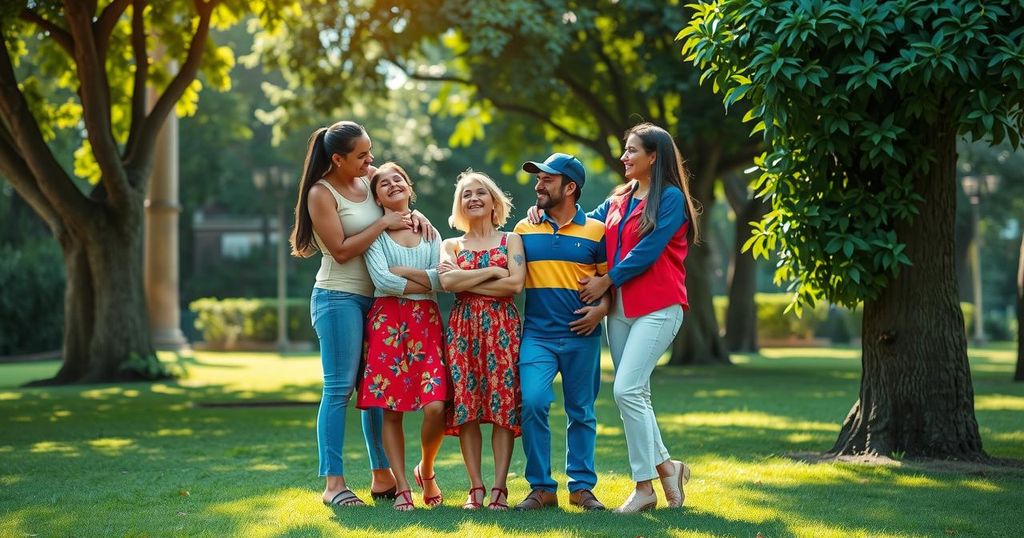Innocence Challenged: The Plight of Deported Venezuelan Migrants
The family of Francisco Javier García Casique disputes U.S. claims labeling deported Venezuelans as violent criminals. Francisco, a hairdresser, was deported to El Salvador, despite having no criminal history. Advocates express outrage over the mistreatment of migrants, calling for a reassessment of immigration policies that misconstrue tattoos as evidence of gang affiliation. Families continue to demand justice and due process for their loved ones.
The family of Francisco Javier García Casique, a 24-year-old Venezuelan migrant deported to El Salvador, vehemently disputes claims made by the Trump administration that characterizes deported individuals as violent criminals. They assert that Francisco, a hairdresser, had never been incarcerated and was an innocent victim of these harsh policies, contrary to the depiction of him as a “heinous monster” by U.S. officials.
Sebastián García Casique, Francisco’s younger brother, expressed profound disbelief upon seeing a propaganda video released by El Salvador’s president showcasing deported Venezuelans being paraded into a prison. Francisco had been anticipating a reunion with his family, but the reality of his situation became apparent when he identified him amongst shackled individuals in a video meant to intimidate.
Lindsay Toczylowski, an immigration lawyer, shared her distress upon recognizing a client in the same video, noting the shocking escalation of human rights abuses against migrants. Reports indicate that over 260 Venezuelans were deported to El Salvador, many of whom had no criminal history and were exiled due to their nationality and tattoos, which immigration authorities misinterpreted as gang affiliations.
Francisco’s tattoos, including a tribute inspired by the Book of Isaiah, reflect not gang membership but rather personal significance. His brother Sebastián has the same tattoo, underscoring their shared background. Mercedes Yamarte also voiced concerns for her son, Mervin Yamarte, who, despite being a decent individual, faced similar prejudicial treatment based on his tattoos and recent immigration status.
Toczylowski emphasized that tattoos attributed to gang affiliation did not accurately represent her client’s character. García’s journey began in Venezuela, leading him to Peru and eventually the U.S. in search of better opportunities for his family. Despite his aspirations for a better life, he faced an abrupt end to his dreams in El Salvador’s notorious prison.
Migration experts have condemned the situation, highlighting the lack of due process and arguing against the presumption of guilt based on tattoos. Adam Isacson articulated that many deported individuals do not belong to gangs and are innocent. Sebastián called on Trump to reassess his brother’s case, asserting that innocent individuals should not be punished and should be returned to Venezuela instead.
In summary, the plight of Francisco Javier García Casique and others like him raises serious concerns about the treatment of migrants and the consequences of policies recognizing tattoos as indicators of criminal behavior, reflecting a critical need for systemic review in immigration practices.
The case of Francisco Javier García Casique exemplifies the grave injustices faced by Venezuelan migrants under current U.S. deportation policies. As families advocate for their loved ones, the implications of misrepresenting individuals based on uninformed assumptions regarding tattoos and nationality highlight a severe lack of due process. The call for reform serves not only to preserve the dignity of innocent individuals but also to reassess the application of immigration laws amidst a growing humanitarian crisis.
Original Source: www.theguardian.com




Post Comment